-
 India tells X to block over 8,000 accounts
India tells X to block over 8,000 accounts
-
Germany's Merz tells Trump US remains 'indispensable' friend
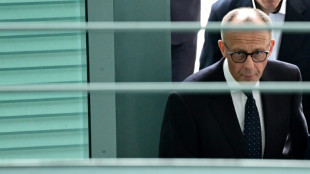
-
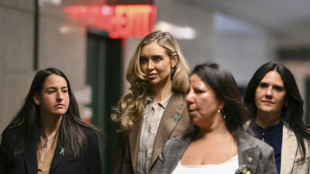 Ex-model testifies in NY court that Weinstein assaulted her as a minor
Ex-model testifies in NY court that Weinstein assaulted her as a minor
-
Chelsea ease past Djurgarden to reach Conference League final

-
 Man Utd crush Athletic Bilbao to set up Spurs Europa League final
Man Utd crush Athletic Bilbao to set up Spurs Europa League final
-
Spurs reach Europa League final to keep Postecoglou's trophy boast alive

-
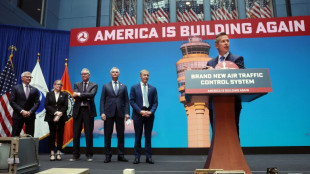 US unveils ambitious air traffic control upgrade
US unveils ambitious air traffic control upgrade
-
US climate agency stops tracking costly natural disasters

-
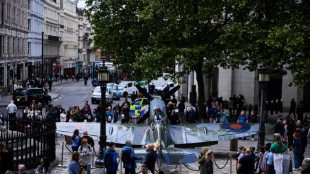 Germany slams Russian 'lies', France warns of war 'spectre' in WWII commemorations
Germany slams Russian 'lies', France warns of war 'spectre' in WWII commemorations
-
'A blessing': US Catholics celebrate first American pope

-
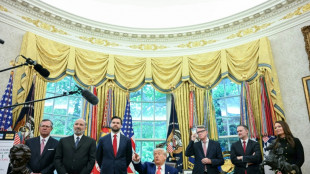 Trump hails 'breakthrough' US-UK trade deal
Trump hails 'breakthrough' US-UK trade deal
-
Cardinals elect first American pope as Robert Francis Prevost becomes Leo XIV

-
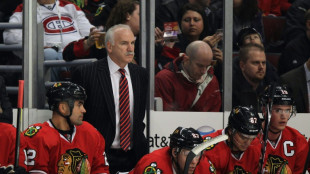 NHL Ducks name Quenneville as coach after probe into sex assault scandal
NHL Ducks name Quenneville as coach after probe into sex assault scandal
-
'Great honor': Leaders welcome Leo, first US pope
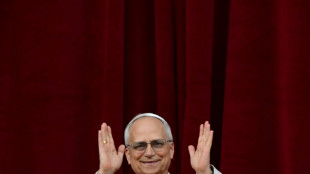
-
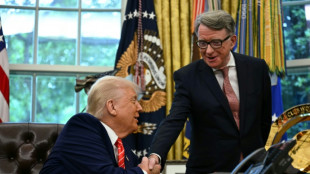 What is in the new US-UK trade deal?
What is in the new US-UK trade deal?
-
MLB Pirates fire Shelton as manager after 12-16 start
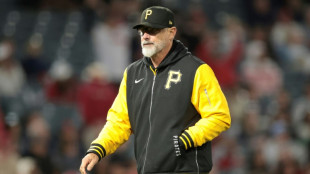
-
 Alcaraz '100 percent ready' for return to action in Rome
Alcaraz '100 percent ready' for return to action in Rome
-
Prevost becomes first US pope as Leo XIV
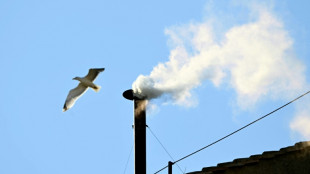
-
 Andy Farrell holds out hope for son Owen after Lions omission
Andy Farrell holds out hope for son Owen after Lions omission
-
Roglic leads deep field of contenders at tricky Giro d'Italia

-
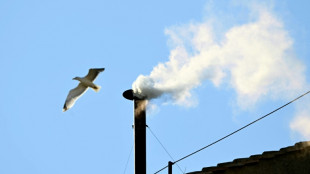 White smoke signals Catholic Church has new pope
White smoke signals Catholic Church has new pope
-
Bill Gates speeds up giving away fortune, blasts Musk
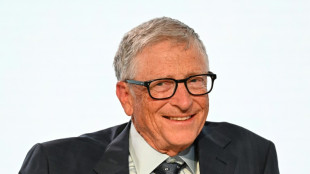
-
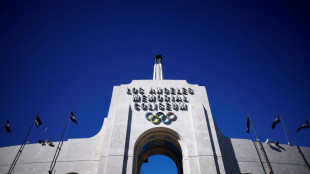 LA Coliseum, SoFi Stadium to share 2028 Olympic opening ceremony
LA Coliseum, SoFi Stadium to share 2028 Olympic opening ceremony
-
Trump unveils 'breakthrough' US-UK trade deal
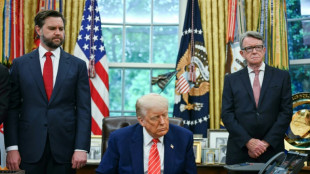
-
 Andy Farrell holds out hope for Owen Farrell after Lions omission
Andy Farrell holds out hope for Owen Farrell after Lions omission
-
Trump calls US Fed chair 'fool' after pause in rate cuts
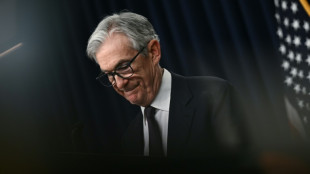
-
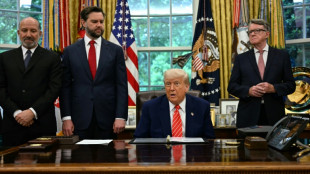 Stocks rise as US-UK unveil trade deal
Stocks rise as US-UK unveil trade deal
-
UN says Israel school closures in east Jerusalem 'assault on children'

-
 Itoje grateful for 'tremendous honour' of leading Lions in Australia
Itoje grateful for 'tremendous honour' of leading Lions in Australia
-
Cardinals to vote anew for pope after second black smoke
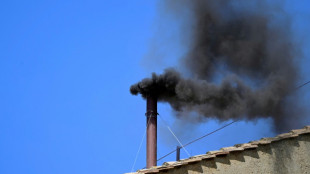
-
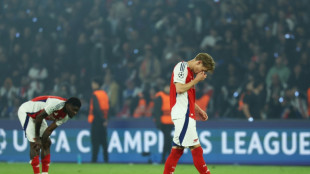 Arsenal fall short again as striker woes haunt Arteta
Arsenal fall short again as striker woes haunt Arteta
-
Inter turn attentions to fading Serie A title defence after Barca triumph
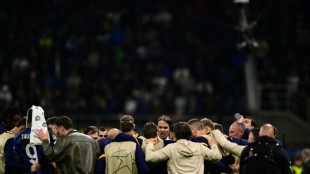
-
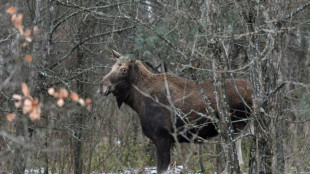 Elk could return to UK after 3,000 years as plan wins funding
Elk could return to UK after 3,000 years as plan wins funding
-
Trump announces 'full and comprehensive' trade deal with UK

-
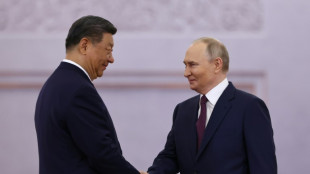 Putin and Xi rail against West as Ukraine reports truce violations
Putin and Xi rail against West as Ukraine reports truce violations
-
England's Itoje to captain British and Irish Lions rugby team in Australia

-
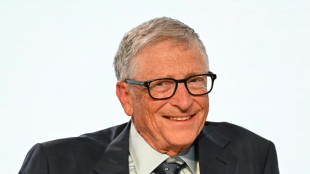 Gates Foundation to spend $200 bn through 2045 when it will shut down
Gates Foundation to spend $200 bn through 2045 when it will shut down
-
Swiatek makes fast start at Italian Open

-
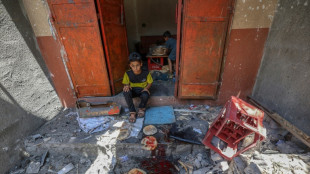 Israel's aid blockade to Gaza 'unacceptable': Red Cross
Israel's aid blockade to Gaza 'unacceptable': Red Cross
-
EU threatens to target US cars, planes if Trump tariff talks fail
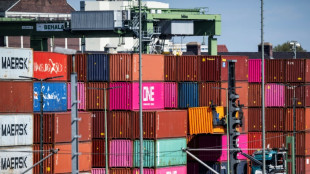
-
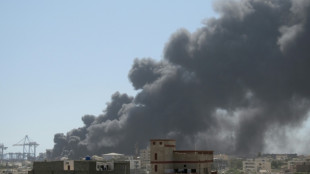 Amnesty says UAE supplying Sudan paramilitaries with Chinese weapons
Amnesty says UAE supplying Sudan paramilitaries with Chinese weapons
-
Bank of England cuts interest rate as US tariffs hit economy
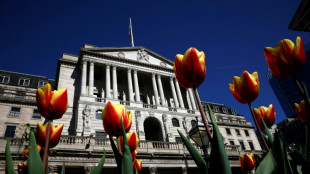
-
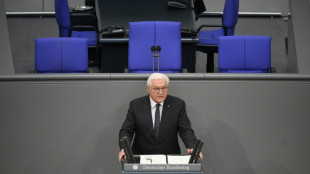 Germany slams Russian 'lies' on Ukraine in WWII commemoration
Germany slams Russian 'lies' on Ukraine in WWII commemoration
-
Pakistan and India accuse each other of waves of drone attacks
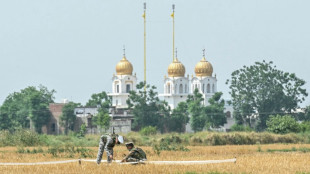
-
 Thrilling PSG home in on elusive Champions League trophy
Thrilling PSG home in on elusive Champions League trophy
-
Wolf protection downgrade gets green light in EU

-
 Fijian Olympic medallist Raisuqe killed after car hit by train
Fijian Olympic medallist Raisuqe killed after car hit by train
-
EU parliament backs emissions reprieve for carmakers
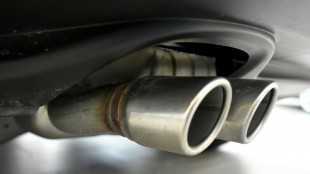
-
 Trump announces trade agreement with UK
Trump announces trade agreement with UK
-
Global temperatures stuck at near-record highs in April: EU monitor
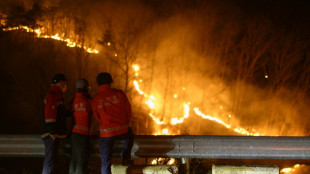
Nations vet climate solutions as world 'sleepwalks' to catastrophe
Nearly 200 nations gathered Monday to grapple with a question that will outlive Covid-19 and Russia's invasion of Ukraine: how does a world addicted to fossil fuels prevent carbon pollution from making Earth unliveable?
A partial answer is set for April 4, in the form of a 3,000-page report from the UN's Intergovernmental Panel on Climate Change (IPCC) due to be approved after two weeks of closed-door, virtual meetings that began Monday.
The assessment will detail options for drawing down greenhouse gases and extracting them from the air, in an urgent effort to stop devastating warming.
"The problem is getting worse," UN chief Antonio Guterres told a separate sustainability conference in London on Monday, adding that major economies are allowing carbon pollution to increase when drastic cuts are needed.
"We are sleepwalking to climate catastrophe."
Climate impacts "are costly and mounting, but we still have some time to close the window and get ahead of the worst of them if we act now," said Alden Meyer, a senior analyst at climate and energy think-tank E3G.
He said the upcoming IPCC report, the last in a three-part assessment of climate change, "will supply the answers as to what we need if we're serious about getting there."
In August 2021, the IPCC laid out the physical science and projected that Earth's surface temperature will rise 1.5 degrees Celsius above preindustrial levels, perhaps within a decade.
A 1.5C cap on global warming -- the aspirational goal of the 2015 Paris climate accord -- has been embraced as a target by most of the world's nations.
Barely 1.1C of warming so far has ushered in a crescendo of deadly extreme weather across the globe.
Recently renewed national carbon-cutting commitments, however, still put us on a catastrophic path toward 2.7C of warming by 2100.
- 'Transformation' -
Part two of the IPCC report -- described by Guterres as an "atlas of human suffering" -- detailed past and future climate impacts and the limits of our ability to adapt.
Delaying climate action would severely reduce the chances of a "liveable future," it concluded.
Part three is about how to keep planet-warming gases out of the atmosphere, with chapters on the key sectors where rapid and deep change is needed: energy, transport, industry, agriculture, among others.
"We are talking about the large-scale transformation of all the major systems," climate economist and co-author Celine Guivarch told AFP.
The main focus is on weaning the global economy off fossil fuels and moving to low- or zero-carbon sources of energy, from solar and wind to nuclear, hydro and hydrogen.
Helping that transition is the fact that renewable energy is now cheaper than energy generated by fossil fuels in many markets.
The IPCC also details ways to reduce demand for oil, gas and coal, whether by making buildings more energy efficient or encouraging shifts in lifestyle, such as eating less beef and not flying half-way around the world for a holiday or business meeting.
But humanity has waited so long to take action that switching supply and reducing demand are not enough: we also need to pull CO2 out of the air.
In theory -- because the technology does not yet exist at scale -- carbon dioxide removal will compensate for hard-to-decarbonise sectors such as aviation and shipping, and extract excess CO2 if temperatures "overshoot" the Paris Agreement targets.
- Likely to fail? -
"Delivering on the climate commitments that we've made internationally and nationally is far more challenging than we have been prepared to accept," said Kevin Anderson, a professor of energy and climate change at the University of Manchester.
"Right now, we are very likely to fail. But if we don't try, we are guaranteed to fail," he told AFP.
The IPCC "solutions" report draws from hundreds of models projecting development pathways that keep Earth within the bounds of the Paris temperature goals.
"There are scenarios that show high renewables and low nuclear, and scenarios that show the opposite," said Taryn Fransen, an analyst at the World Resources Institute in Washington DC.
"This report lays out those pathways. Now it's up to our leaders to take that to heart."
Besides feeding into UN political negotiations, which resume in November in Egypt at COP 27, the IPCC findings will also be important "for the conversation going on in the US and Europe around the need to transition away from Russian oil and gas," said Meyer.
The head of the IPCC delegation from Ukraine made this point in a dramatic statement at a closed plenary in February, only days after Russian troops invaded her country.
"Human-induced climate change and the war on Ukraine have the same roots -- fossil fuels -- and our dependence on them," said Svitlana Krakovska, according to multiple sources.
J.Oliveira--AMWN